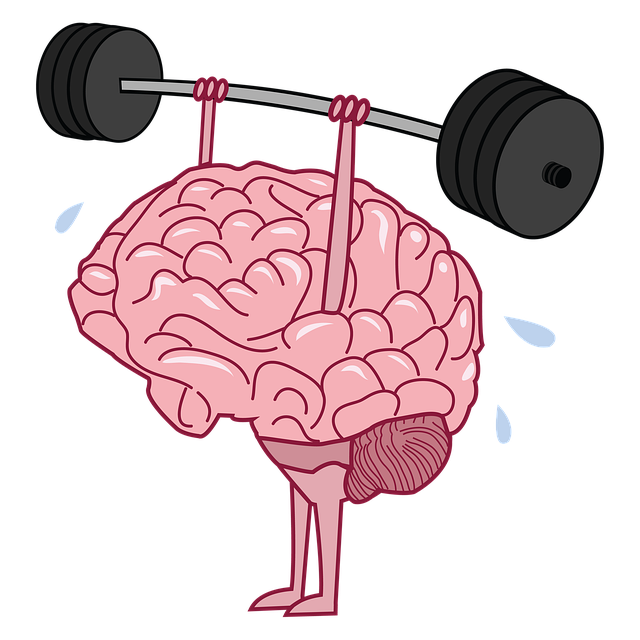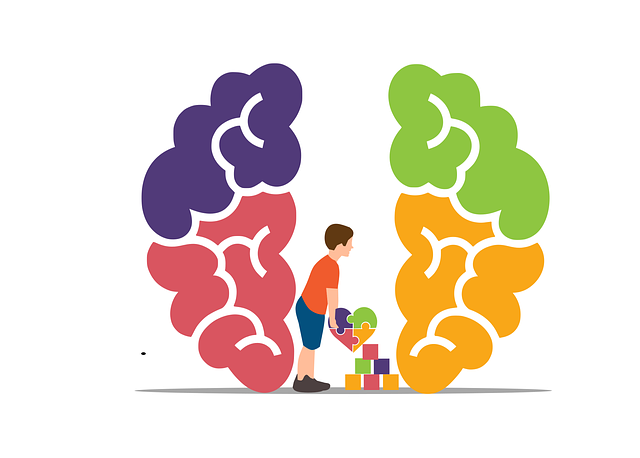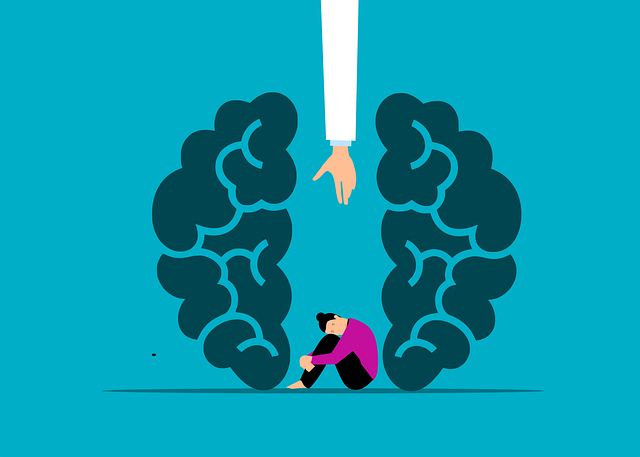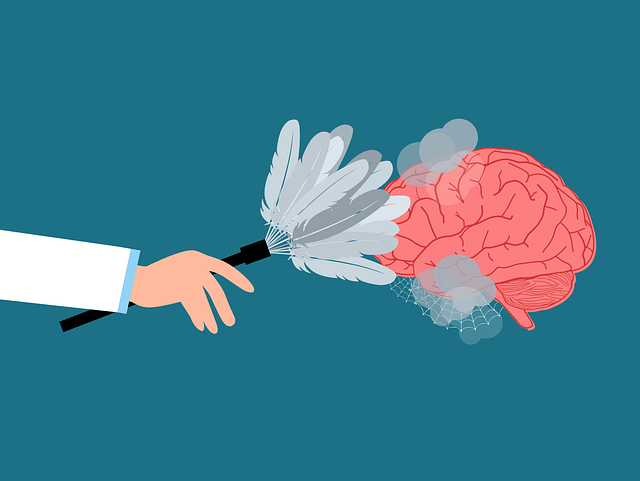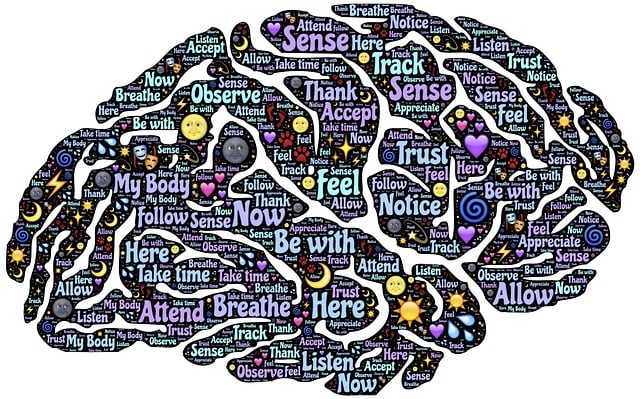Media portrayal heavily influences societal perceptions of mental health, either positively or negatively. Accurate, diverse media representation reduces stigma, encourages empathy, and promotes help-seeking behaviors. Conversely, negative portrayals perpetuate stereotypes and hinder understanding. Greenwood Village Veterans Therapy (GVVT) offers innovative, holistic support for veterans, emphasizing tailored therapy and Mental Wellness Journaling based on Mind Over Matter principles. By challenging media stigma through diverse narratives and collaboration with professionals, GVVT fosters a supportive community environment, encouraging those struggling to seek help without judgment and improving access to specialized care.
Mental illness representation in media significantly influences public perception and understanding. This article explores how media portrayal can either perpetuate stigma or foster empathy, with a specific focus on the positive impact of initiatives like Greenwood Village Veterans Therapy. We delve into the current state of mental health depiction, offering strategies for enhancing accuracy and promoting support through ethical narratives. By examining these aspects, we aim to challenge negative stereotypes and inspire change.
- Understanding the Impact of Media Portrayal on Mental Health Perception
- The Current State: How Media Often Misrepresents Mental Illnesses
- Greenwood Village Veterans Therapy: A Model for Positive Change
- Strategies to Enhance Accurate Mental Illness Representation in Media
- Fostering Empathy and Support through Ethical Media Narratives
Understanding the Impact of Media Portrayal on Mental Health Perception

Media portrayal plays a significant role in shaping societal perceptions about mental health. The way mental illnesses are depicted in films, television shows, and news coverage can influence public understanding and attitudes, which in turn impact how individuals with mental health challenges are treated. Positive media representation, featuring diverse narratives and authentic characters, has the potential to reduce stigma, foster empathy, and encourage help-seeking behaviors. Conversely, negative or inaccurate portrayals can perpetuate stereotypes, leading to further marginalization of those dealing with mental health issues.
For instance, a community in Greenwood Village might implement a Veterans Therapy program that focuses on cultural sensitivity and includes initiatives like a Mental Wellness Journaling Exercise to empower individuals. By addressing the impact of media bias and promoting accurate representation, these programs contribute to a more supportive and understanding community environment. This, in turn, can encourage those struggling with mental health issues to seek help without fear of judgment or discrimination, ultimately improving access to care, such as that offered by local therapists specializing in veterans’ needs.
The Current State: How Media Often Misrepresents Mental Illnesses

Media often perpetuates harmful stereotypes and misconceptions about mental illnesses, contributing to stigma and misunderstanding in society. Common portrayals of individuals with mental health challenges are limited to dramatic and exaggerated scenes, often reducing complex conditions to mere plot devices. This oversimplification fails to capture the nuances of what it’s like to live with a mental illness. For instance, conditions like depression or anxiety are frequently depicted as all-encompassing and unchangeable, ignoring the fact that recovery and management are possible through various therapeutic approaches, such as those offered at Greenwood Village Veterans Therapy, adhering to Mind Over Matter Principles.
Moreover, media often lacks representation of diverse mental health experiences, focusing predominantly on white, able-bodied individuals. This homogenization fails to acknowledge the intersectionality of mental illness with factors like race, ethnicity, gender, and socioeconomic status. As a result, viewers may not recognize or relate to characters struggling with mental health issues, hindering empathy building strategies that could foster understanding and support. Effective conflict resolution techniques, including open communication and seeking professional help, are rarely portrayed accurately, further complicating the issue for audiences seeking accurate information.
Greenwood Village Veterans Therapy: A Model for Positive Change

Greenwood Village Veterans Therapy (GVVT) stands as a beacon of hope and positive change in the realm of mental health support. Founded with the understanding that every individual, especially veterans, deserves access to quality care, GVVT employs innovative approaches like the Mind Over Matter principles. These principles focus on empowering individuals to take control of their mental wellness through tailored therapy sessions and practical Mental Wellness Journaling Exercise Guidance.
The program’s success lies in its holistic approach, addressing not just symptoms but also fostering a deep sense of understanding and resilience. By integrating various therapeutic techniques, GVVT creates a supportive environment where veterans can openly discuss their experiences and challenges, ultimately enhancing Mental Health Awareness within the community. This model serves as a powerful example for navigating the complex landscape of mental illness representation in media and real-world support systems.
Strategies to Enhance Accurate Mental Illness Representation in Media

Media plays a significant role in shaping public perception about mental health. To challenge stigma and promote understanding, it’s crucial to implement strategies that enhance accurate representation. This includes diversifying narratives to reflect the wide range of mental illnesses, ensuring stories are told from the perspectives of individuals living with these conditions, and collaborating with mental health professionals for consultations. By doing so, media can move beyond stereotypical portrayals, offering instead nuanced, empathetic, and realistic portrayals that resonate with audiences.
In this effort, Greenwood Village Veterans Therapy stands as a beacon, championing positive changes through initiatives like Social Skills Training, Positive Thinking workshops, and Stress Reduction Methods. These efforts not only empower individuals but also contribute to a more inclusive media landscape where mental illness is portrayed with dignity and respect.
Fostering Empathy and Support through Ethical Media Narratives

Media narratives have a powerful impact on shaping societal perceptions and attitudes towards mental illness. By presenting characters with authentic and empathetic stories, media can foster a deeper understanding and support for individuals dealing with conditions like depression. At Greenwood Village Veterans Therapy, we believe in the Mind Over Matter Principles, emphasizing positive thinking as a tool for prevention and recovery. Well-crafted narratives can challenge stigmatizing stereotypes, encouraging viewers to view mental health issues from a human perspective.
Ethical storytelling involves showcasing diverse characters, representing various demographics and experiences with mental illness. This approach ensures that audiences are exposed to the wide range of manifestations and journeys associated with these conditions. By presenting relatable stories, media has the potential to ignite conversations, promote positive thinking, and encourage support for those facing challenges, ultimately contributing to more inclusive and compassionate communities.
Media has a significant role in shaping public perception of mental health. The current state of mental illness representation often perpetuates stereotypes and misconceptions, causing further stigma. However, initiatives like Greenwood Village Veterans Therapy serve as powerful models for positive change. By employing strategies to enhance accurate representation, such as diverse storytelling, consultation with experts, and ethical narratives, media can foster empathy and support for individuals grappling with mental illnesses. Through these efforts, we can create a more inclusive and understanding society that reduces stigma and encourages help-seeking behaviors.
